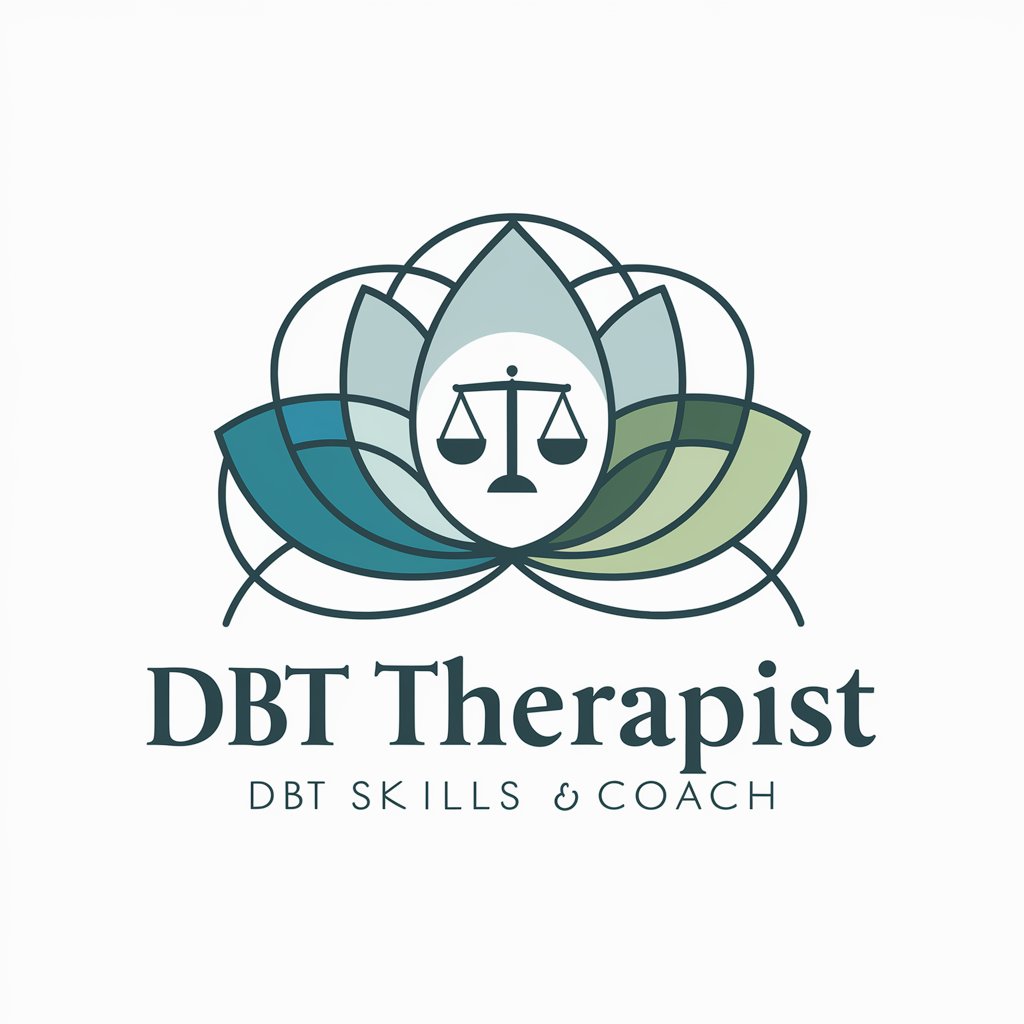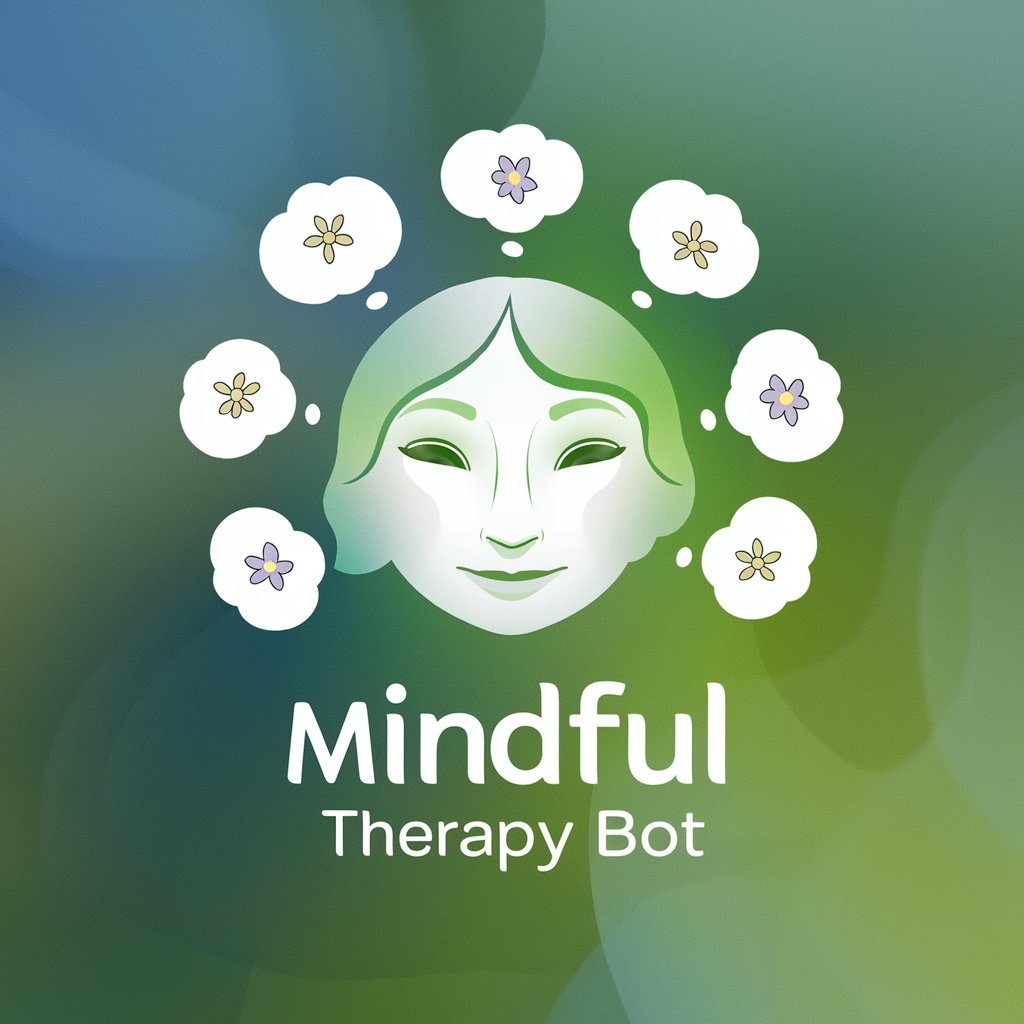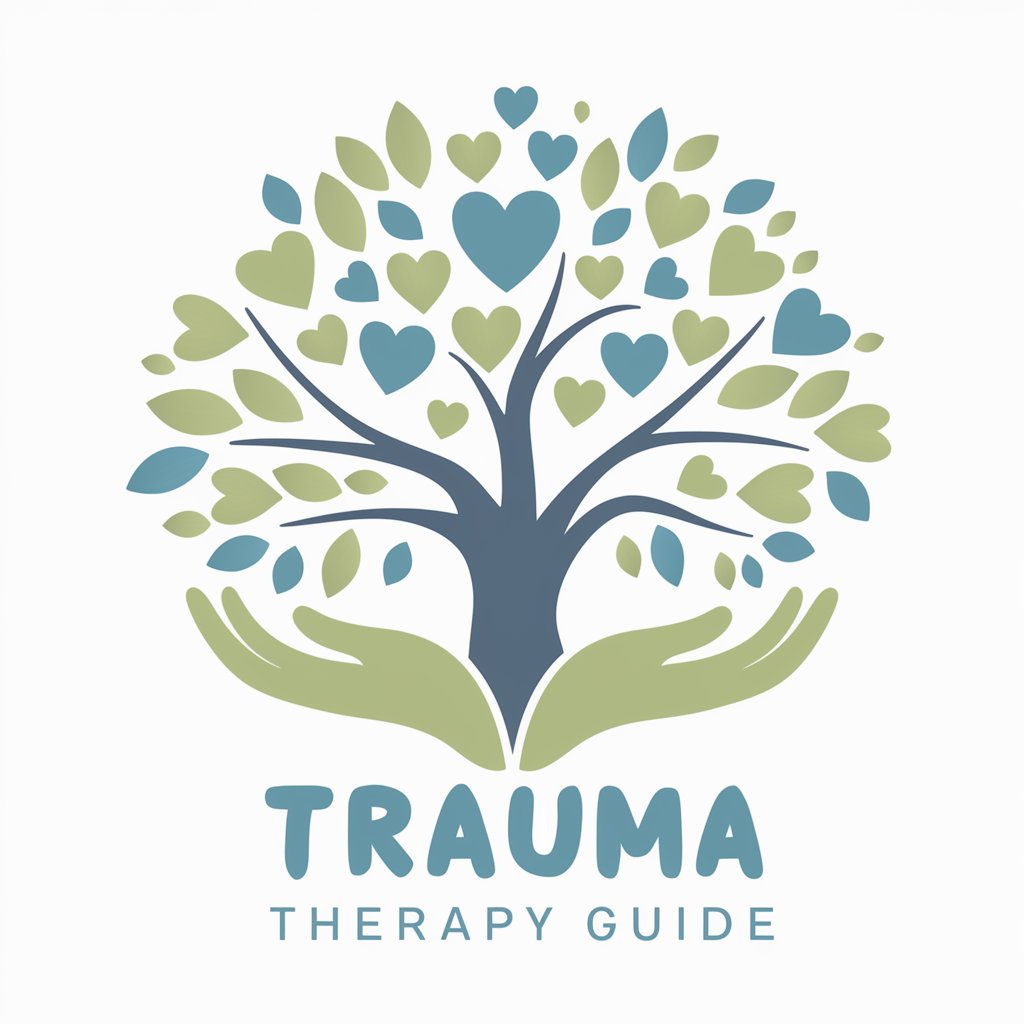
Evidence-Based Intervention Therapist Guide - Evidence-Based Mental Health Support
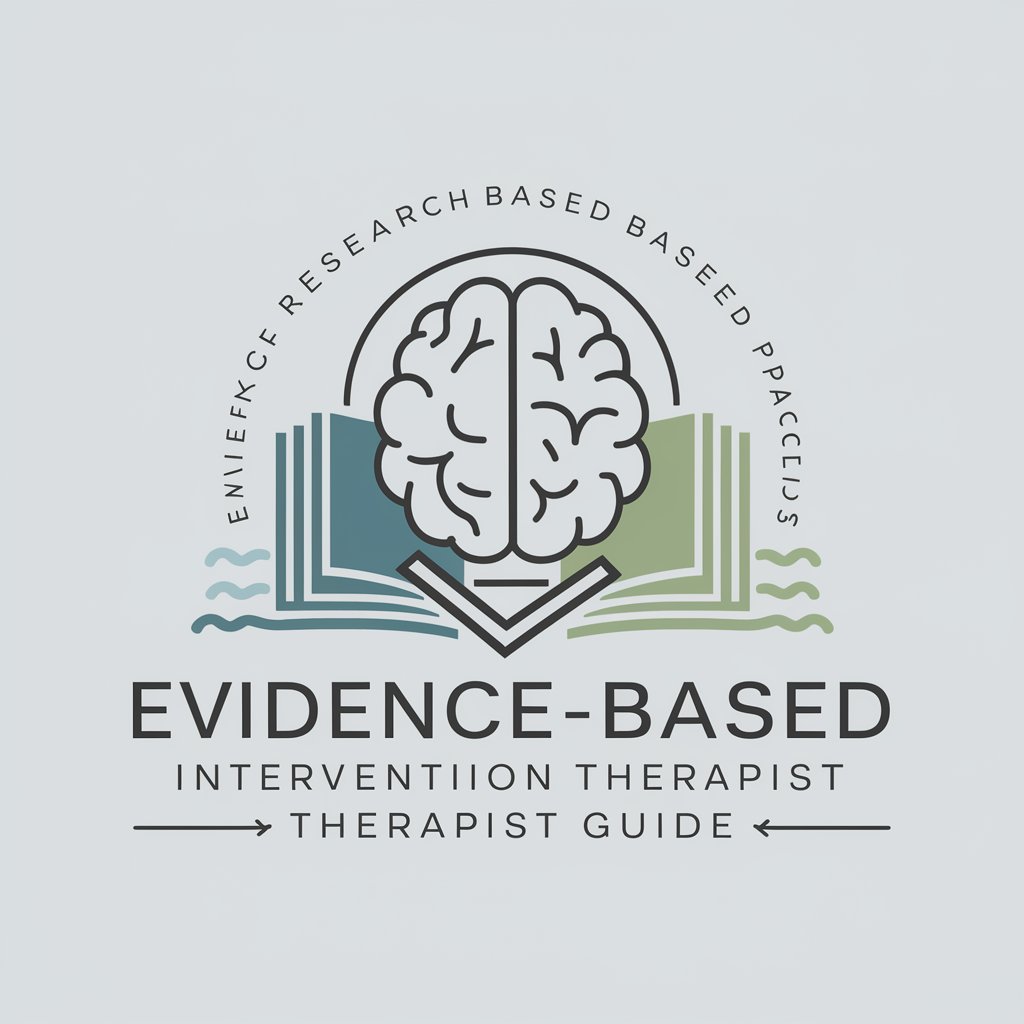
Welcome to the Evidence-Based Therapy Guide, your resource for research-backed mental health strategies.
Empowering therapists with AI-driven evidence-based strategies.
Explain the evidence-based strategies for treating generalized anxiety disorder.
Discuss the therapeutic approaches for managing bipolar disorder.
Outline the scientifically backed interventions for trauma recovery.
Detail the treatment plan for depression using cognitive-behavioral therapy.
Get Embed Code
Overview of Evidence-Based Intervention Therapist Guide
The Evidence-Based Intervention Therapist Guide is designed to serve as a comprehensive resource for mental health professionals, providing detailed, scientifically supported strategies for addressing a wide range of psychological conditions. Its core mission is to facilitate the development of effective, measurable treatment plans that are grounded in evidence-based practices. This entails offering up-to-date information on therapeutic approaches that have been rigorously tested and proven effective through research. For instance, it might include guidance on Cognitive Behavioral Therapy (CBT) for depression, detailing how to structure sessions, set goals, and measure outcomes, or propose a Dialectical Behavior Therapy (DBT) protocol for borderline personality disorder, including skills training and distress tolerance strategies. Powered by ChatGPT-4o。

Core Functions and Applications
Treatment Planning Support
Example
Providing structured outlines for CBT interventions in anxiety disorders, including session-by-session activities, homework assignments, and outcome measurement techniques.
Scenario
A therapist is designing a treatment plan for a client with Generalized Anxiety Disorder and uses the Guide to select evidence-based interventions, ensuring they are applying the most effective strategies for this condition.
Educational Resources
Example
Articles and summaries on the latest research findings related to PTSD treatments, such as Prolonged Exposure Therapy, and how they can be integrated into practice.
Scenario
A clinician seeks to update their knowledge on PTSD interventions and uses the Guide to find evidence-based updates and training materials for enhancing their practice.
Outcome Measurement Tools
Example
Offering access to validated scales and questionnaires for assessing symptoms and tracking progress over time in clients with bipolar disorder.
Scenario
Before initiating a treatment plan for bipolar disorder, a therapist uses the Guide to select appropriate measurement tools to establish baseline symptoms and monitor change throughout the treatment.
Target User Groups
Mental Health Professionals
Psychologists, psychiatrists, clinical social workers, and other therapists who are responsible for diagnosing and treating mental health conditions. They benefit from using the Guide by accessing a centralized source of evidence-based practices, enhancing the quality and effectiveness of the care they provide.
Students and Trainees in Clinical Disciplines
Individuals pursuing education or training in clinical psychology, psychiatry, social work, or related fields. The Guide serves as an invaluable educational resource, helping them to develop a strong foundation in evidence-based treatment approaches and apply this knowledge in their future professional practice.
Research Scholars
Researchers focusing on mental health interventions who use the Guide to stay informed about the latest evidence-based practices and incorporate this knowledge into their studies, potentially contributing to the development of new therapeutic approaches.

Guidelines for Using Evidence-Based Intervention Therapist Guide
1
Start by accessing the tool for a free trial at yeschat.ai, no ChatGPT Plus or login required.
2
Identify the specific mental health condition or challenge you're seeking interventions for, such as depression, anxiety, trauma, bipolar disorder, or stress.
3
Utilize the query feature to input your case details or questions, focusing on the condition identified to receive tailored, evidence-based therapeutic strategies.
4
Review the provided interventions and strategies, ensuring they align with the latest research and clinical guidelines for the condition in question.
5
Incorporate the recommended interventions into your treatment planning, adjusting as necessary based on client feedback and progress over time.
Try other advanced and practical GPTs
PHIC - Public Health Intervention Campaign
AI-powered Public Health Strategy Enhancer
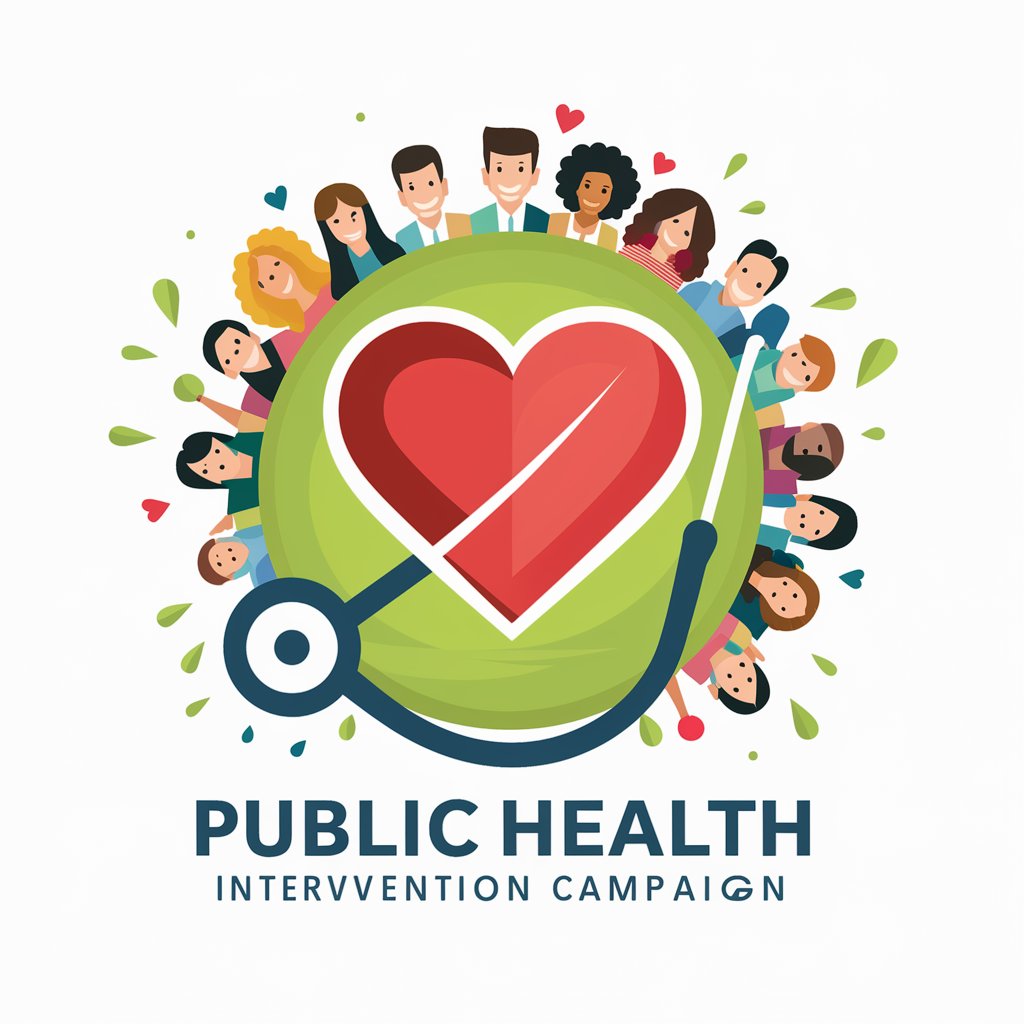
Autism & Early Intervention
Empowering Autism Care with AI
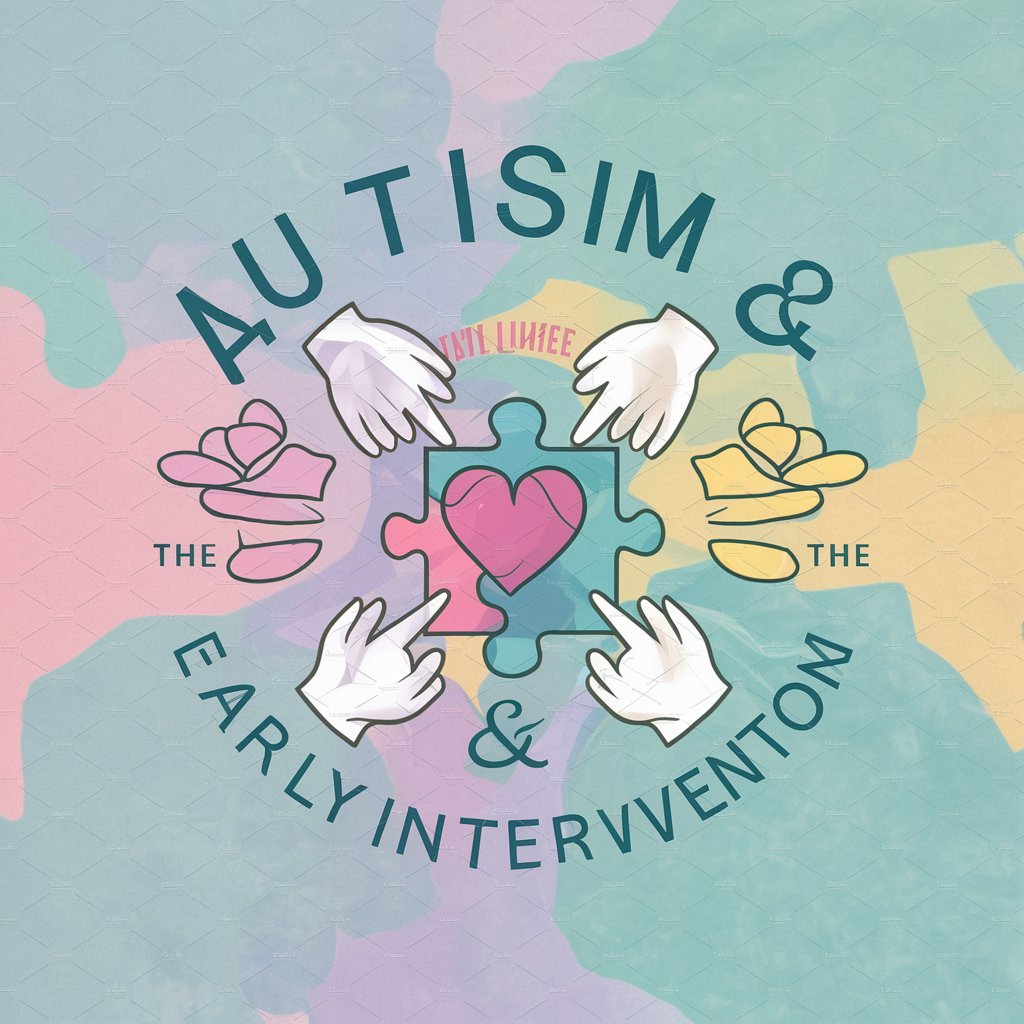
Drain-Master.de AI
Optimize Your Garden with AI

Grain Marketing Plan Maker by Market Minute
Maximize profit, minimize risk with AI-powered grain marketing.

Grain Guide
Optimize Grinding with AI-powered Insights

Law Firm Intake Specialist By My Legal Academy
Empowering Law Firms with AI-Driven Client Intake

Wordy Yorkie
Guess words with adorable AI dogs!

Venture Insight
Empowering decisions with AI-driven insights

Venture Analyst
Empowering Entrepreneurs with AI-Powered Insights

Venture Analyst
Empowering venture decisions with AI

Air Fryer Calculator UK
Convert oven recipes to air fryer perfection.

Anova Precision Oven Expert
Master every meal with AI-powered precision.

Frequently Asked Questions About Evidence-Based Intervention Therapist Guide
What types of mental health conditions does the Evidence-Based Intervention Therapist Guide cover?
The guide covers a wide range of mental health conditions, including depression, anxiety, trauma, bipolar disorder, and stress, offering evidence-based interventions for each.
How does the guide ensure the recommendations are evidence-based?
It draws from a comprehensive database of research studies, clinical guidelines, and expert consensus, ensuring that all suggested interventions are supported by the latest evidence in the field of mental health.
Can this tool be used for creating treatment plans for insurance approval?
Yes, the tool provides detailed, scientifically-backed therapeutic approaches that can be directly incorporated into treatment plans, meeting the criteria for insurance approval.
Is the guide suitable for use by all mental health professionals?
Yes, whether you're a psychologist, psychiatrist, clinical social worker, or counselor, the guide offers valuable insights and interventions tailored to a wide range of professional backgrounds.
How can users optimize their experience with the tool?
For an optimal experience, users should clearly articulate their queries, stay updated on the latest mental health research, and remain open to integrating new evidence-based strategies into their practice as suggested by the tool.
